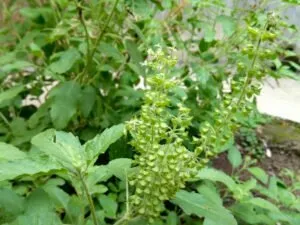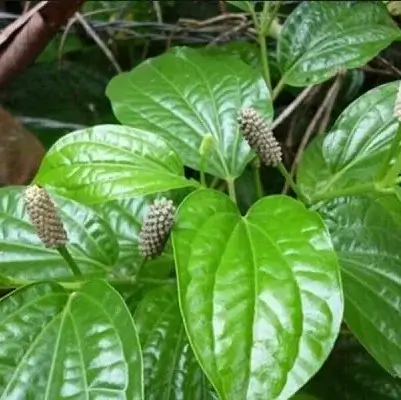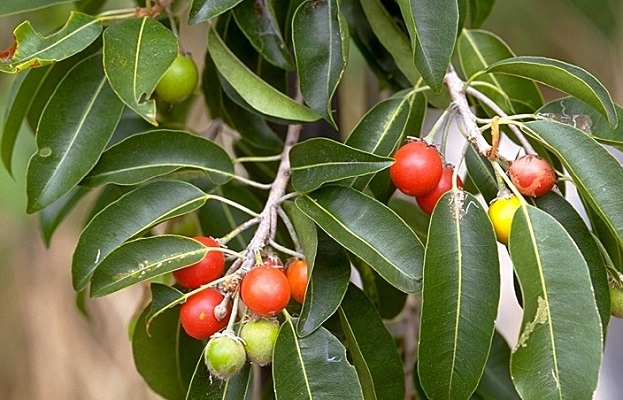On This Page
Tulasi – Ocimum sanctum
Introduction
Tulasi, commonly known as ‘Holy basil’ is an erect, herbaceous, much-branched, softly hairy, annual herb with a typical aromatic smell. It is commonly cultivated in gardens. It is most commonly planted-pot herb on account of its particularly socio-religious importance as a sacred plant (Hindu religion) as well as environmental (including antimicrobial) utility for Indian community as a whole in general. The word ‘Ocimum’ is derived from a Greek word ‘Okimon’ which means smell and ‘sanctum’ indicates holy or used for religious purposes. Tulasi is regarded as the “Queen” among herbs and the most used herb in Ayurveda.
Dr.Gupta’s IAFA has conducted various studies in Holy basil to find out the therapeutic actions of the herb. The experts have successfully proven the activities like antiasthmatic, antirheumatic, antistress, antibacterial, antifungal, antiviral, antifertility, abortifaecient, hypoglycemic, antispasmodic, antipyretic, antiulcer, antiinflammatory, anticancer and hypotensive properties of Tulasi. The experienced scholars of IAFA found out that the phytoconstituents like eugenol, carvacrol and rosolic bring about its antiulcer and anti secretory characteristics and help in healing of gastric ulceration. It is found that the crude extract of Ocimum sanctum have antistress and antiaging actions. So this herb is widely used in different diseases including allergic reactions.
Vernacular Names
| Hindi name | Hindi name- Tulsi |
| Sanskrit name | Tulasi, Tulsi, Gouri, Naga Mata, Bhutaghni, Bhutapriya, Bhuteshta, Bhutapati, Apetarakshasi, Gramya, Surasa, Sulaghni, Subhaga, Sulabha, Surabhi, Svadu Gandha, Sumanjari, Bahumanjari, Pavani, Devadundubhi, Vishnu Vallabha, Haripriya |
| English name | Indian Basil, Holy Basil, Sacred Basil |
| Malayalam name | Tulasi |
| Marathi name | Tulasi |
| Telgu name | Tulasi |
Botanical Name
Ocimum sanctum Linn.
Family
Lamiaceae
Ayurvedic Reference of Tulasi

Parts Used of Tulasi – Ocimum sanctum
- Leaf
- Root
- Seed
Preparation and dosage of Tulasi – Ocimum sanctum
- Seed Powder (choornam) – 3-6 gm per day
- Leaf Juice (swaras)– 20-30ml per day
- Root Decoction (kashayam)-50-100ml per day
Medicinal Properties and Uses of Tulasi – Ocimum sanctum
- Food allergy: stimulates agni (digestive fire), hence helps to eliminates aam visha (free radical) from the body to overcome food allergic symptoms.
- Chest and nasal allergy: found very effective in bad breathing problems and to expel sputum from the lungs hence used in cough and cold, asthma, rhinitis, sinusitis and bronchitis or any chronic respiratory disorder.
- Skin allergy: found effective in generalized itching and urticarial rashes.
- Fungal Infection: tulsi is clinically used to treat patients of tinea infections and aspergillosis.
- Eye allergy: used in allergic condition like conjunctivitis.
- Immune modulator: due to its immune booster activity tulsi is found to be very effective in immune compromised patients to fight against various microbial actions.
- Antioxidant: helps to remove free radicals from the body.
- Anticancer: has medicinal property to compensate the side effects of radiotherapy in cancer patients.

Have A Health Issue?
Consult Online
- Dr. Sahil Gupta (B.A.M.S., M.H.A.)
Ayurvedic Allergy Specialist
CEO & Founder of IAFA®
Home remedies of Tulasi – Ocimum sanctum
Ayurveda is the medical system which uses wide varieties of herbs and natural solutions for curing diseases as well as to maintain health. Tulsi is the “Queen” among herbs with plenty of home remedies as per Ayurveda.
- In Malarial fever (Vishama jwara) – Juice of Tulasi is taken and mixed with powder of Piper nigrum. It is then used in malarial fever.
- In Cough (Kasa) – The whole Tulasi plant is taken and made into juice. It is then taken with honey. The mixture can immediately cure Cough.
- In Urticaria (Sitapitta) – Juice of Tulasi is extracted and applied on skin. 10-20 leaves are squeezed well to obtain the juice.
- In Allergies and Asthma (Swasa) – The extracted juice of Tulasi is mixed with honey and taken orally. Intake of this mixture for a period of 7 days can cure Asthma.
- In Insect sting allergy (Vishavikara) – Tulasi is made into paste with fresh Curcuma longa rhizomes and applied over the bitten area. It can act as antipoisonous.
- In Hoarseness of voice (Swara bheda) –Fresh leaves of Tulasi are collected and squeezed to obtain juice. Tulasi juice is taken with honey to cure Hoarseness of voice.
- As carminative (Dipana) – Juice of Tulasi is taken before food for maintaining a good digestion.
- In worm infestations (Krimi) – Juice of Tulasi is taken with honey can kill harmful worms lying inside the body.
- Herbal tea: Tulasi leaves are used now a day as chief ingredients in herbal tea preparation.
- Headache: Tulasi swaras drops are used as a nasal drops to reduce headache related to migraine and sinusitis.
Dr.Gupta’s IAFA is the leading provider of high quality medicinal products and treatments. The well experienced members of IAFA are consistently working to find out the most effective ways to cure all diseases especially Allergic disorders. All the medicines used are mentioned in classic textbooks of Ayurveda and are carefully prepared by maintaining high quality level.IAFA, aims at the propagation of real Ayurveda around the globe for attaining the concept of “healthy life for all”.
Healthy life through IAFA!!!
Was this Page Helpful?
Read More Articles

Kasini (Cichorium intybus)
Know about the uses, benefits, and medicinal properties of Chicory, Kasini (Cichorium…









